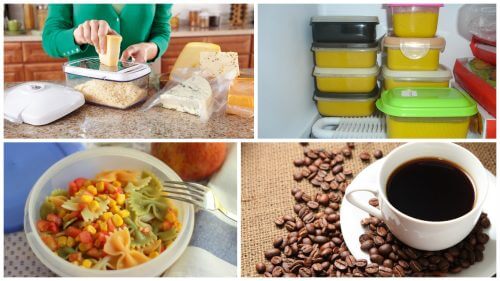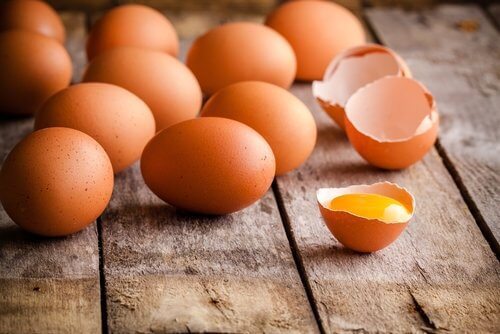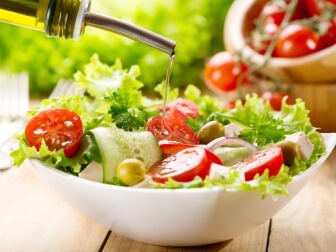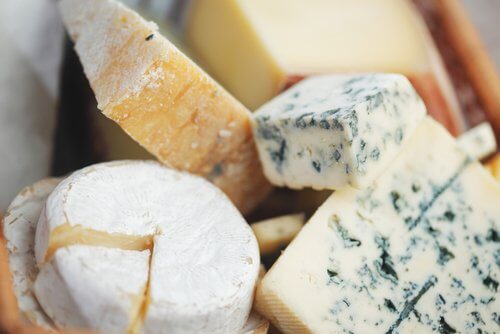7 Foods You Should Never Store in Plastic


Reviewed and approved by the pedagogue in physical education and nutritionist Elisa Morales Lupayante
Plastic bags and containers are a staple for storing all kinds of cooked and raw foods. We often use them to refrigerate leftovers and bring lunch to work. You’ll see them in all shapes and sizes in people’s homes, and they’re much cheaper than other types of containers or wraps. The problem is that there are some foods you should never store in plastic.
Some foods can go bad more easily when they come in contact with plastic. Or, if the container is damaged, it can allow bacteria in.
But many people are unaware of this danger and continue to use these bags and containers without taking the appropriate safety measures. So, today we’re going show you 7 specific foods that should never, ever store in plastic.
Pay attention!
1. Raw eggs, one of the foods you should never store in plastic

Raw eggs and foods that contain them, like mayonnaise, should never be stored in a plastic container. That could lead them to become contaminated with salmonella or E. coli.
Unfortunately, these microorganisms spread easily through raw eggs. When in contact with plastic, they multiply like crazy.
The only way to safely store raw eggs is in an insulated container or one that has ice in it.
2. Processed meat
The reason you shouldn’t store processed meats in plastic containers is that this tends to lower their nutritional value.
When meat is processed, like in stews or breaded fillets, it decomposes quickly and its taste and texture changes.
3. Stews and soups

The characteristics and taste of stews and soups cooked at high temperatures change when they touch plastic.
But, as long as you let them cool before storing them in plastic, you can then put them in the refrigerator with no problem.
Letting it cool down stops the heat from breaking down the plastic particles, so it prevents the issue.
4. Milk and dairy products
Plastic containers are not the ideal way to store milk or dairy products.
Although they’re fine for a few hours, plastic is not a good idea for long-term storage since it increases the risk of bacterial contamination.
Plastic containers allow for temperature changes, speeding up the breakdown of a food and increasing the risk of getting sick from eating it.
The best alternative for storing milk and dairy products is ceramic or aluminum, which can help them last longer.
5. Salad with dressing

Many people think that Tupperware is the best way to store fresh vegetables, even once they’ve already prepared them them.
Even, although plastic containers can help avoid cross-contamination, they are not good at keeping this kind of food good for longer.
You might like:
6 Food Storage Mistakes to Avoid in Order to Keep Food Fresh
As for salads with dressing, plastic can affect their flavor and cause them to lose some nutritional value.
6. Coffee or tea
Even for plastic containers and mugs that you can use for beverages like tea and coffee, it’s always best to wait for them to cool before pouring them in.
That’s because high temperatures cause changes and increase the risk of bacterial contamination.
It’s best to just store these drinks in containers made of other materials so that they don’t lose their flavor and nutrition.
Read more?
Study Reveals the Best Time of the Day For Your First Cup of Coffee
7. Cheese

Cheese falls into the dairy products category we talked about above, but it’s worth mentioning again because of the special risks there are for leaving cheese in plastic containers.
Every kind of cheese lets off water, which builds up in the container, encouraging the growth of mold and bacteria.
If you leave it for more than three days without removing the cover, unstable substances can build up and cause food contamination.
As a result, this affects its texture and nutritional properties and can cause digestive problems when you eat it.
As convenient as it may be, there are some foods you should just never store in plastic, or at least not without the proper precautions. Follow these tips and try to find a safer, healthier alternative!
All cited sources were thoroughly reviewed by our team to ensure their quality, reliability, currency, and validity. The bibliography of this article was considered reliable and of academic or scientific accuracy.
-
TOXNET. (2017). Bisfenol A.
-
Azevedo, M. R. Q. A., Gouveia, J. P. G., Trovão, D. M. M., & Queiroga, V. P. (2003). Influência das embalagens e condições de armazenamento no vigor de sementes de gergelim. Revista Brasileira de Engenharia Agrícola e Ambiental. https://doi.org/10.1590/S1415-43662003000300019
-
Rodríguez, R., Rojo, G., Martínez, R., Piña, H., & Ramírez, B. (2014). Envases inteligentes para la conservacion de alimentos. Ra Ximhai.
This text is provided for informational purposes only and does not replace consultation with a professional. If in doubt, consult your specialist.








